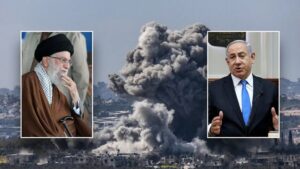Israeli Attacks Put the Leadership of Iran in a Difficult Situation – And the World Is Watching
Right now, if you talk to anyone who’s been following Middle Eastern affairs, the tension is almost palpable. The air between Israel and Iran has grown heavier with every passing week. And now, with these latest attacks, things feel… different. Israeli attacks have put the leadership of Iran in a difficult situation, one that’s not just political—it’s personal, national, and deeply complicated.
Why This Moment Feels Different
Iran and Israel have never been friends. That’s no secret. Over the years, there’s been a lot of back-and-forth—through proxies, threats, and the kind of shadow warfare that never quite hits the headlines. But these recent Israeli strikes? They’re not in the shadows anymore. They’re loud, visible, and meant to provoke.
Some of the attacks have hit Iranian targets in Syria, others allegedly even inside Iran’s own borders. It’s a serious escalation. And now, Iran’s top decision-makers are staring at a very hard question: how do you respond without starting a war?
Tehran’s Balancing Act
Here’s the real issue: Iran’s leaders don’t have many good options.
Respond with force? That could lead to an all-out regional conflict. Stay quiet or act cautiously? That risks looking weak—something no political leader wants, especially in a country like Iran, where public sentiment is a powerful force.
So yes, Israeli attacks put the leadership of Iran in a difficult situation, and it’s not just about missiles or soldiers. It’s about pride, survival, politics, and people.
The Pressure Inside Iran
Think about it this way: imagine being in a position of leadership when the whole world is watching—and so is your own population. People in Iran are frustrated. The economy’s hurting. Sanctions are biting. And now, Israeli attacks are raising questions about national security and sovereignty.
Iranian officials know that any misstep here could cost them more than just political points. It could lead to more unrest at home. More protests. More cracks in a system that’s already under a lot of pressure.
The rest of the world comes next.
The rest of the world comes next. The rest of the world continues to watch, analyze, and wait while all of this is happening. As anticipated, the United States is supporting Israel. Calm is demanded by European nations. China and Russia? While they acknowledge Iran’s right to self-defense, they are also refraining from offering immediate assistance.
So when we say Israeli attacks put the leadership of Iran in a difficult situation, we’re talking about a moment where every decision is made under a global spotlight—and any wrong move could lead to irreversible consequences.

What Might Happen Next?
Nobody knows for sure. Iran could retaliate, quietly or not-so-quietly. It could turn to cyberattacks or support more proxy operations in places like Lebanon or Iraq. Or it could play the long game—something Iranian strategy is known for.
But one thing is clear: doing nothing isn’t really an option.
Final Thoughts
There are no easy answers here. And that’s why this situation feels so tense. Israeli attacks have put Iran’s leadership in a very tight spot—one where the stakes are incredibly high, and the margin for error is razor-thin.
Whatever happens next could shape the region for years to come.

